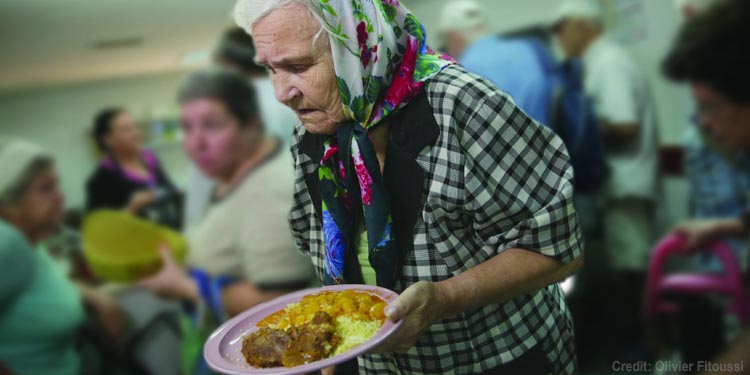Seeing the Needs of Others
Yael Eckstein | August 16, 2021

No Ammonite or Moabite or any of their descendants may enter the assembly of the LORD… For they did not come to meet you with bread and water on your way when you came out of Egypt… — Deuteronomy 23:3-4
Each week in synagogue, Jews read through the Torah from Genesis to Deuteronomy. The Torah portion for this week is Ki Teitzei, which means “when you go out,” from Deuteronomy 21:10–25:19.
One of the values that lies at the heart of so much of the work that we do at The Fellowship is being proactive about helping others. We don’t wait for problems to come to us. We actively search for those who are in need and work to address those needs even before being asked.
The difference between helping when asked and taking initiative is not just a matter of being reactive versus proactive. It’s a fundamentally different way of seeing the needs of others.
If I wait until I am asked to help others, it demonstrates that helping others is not really my priority. After all, the definition of a priority is something that I think about and work toward without needing to be reminded. If helping the needy is truly a priority, the needs of others become more visible to us. We are paying attention and actively looking for ways to help.
Seeing the Needs of Others
We see this value expressed in this week’s Torah portion. The Ammonite and Moabite nations were forbidden from joining the people of Israel because they did not pay attention to the needs of the children of Israel as they passed by during their journey in the desert. They did not greet the Israelites with bread and water. This culture of insensitivity was enough for God to prohibit them from joining His chosen nation.
Contrast the behavior of the Ammonites and Moabites with that of Abraham in Genesis 18. Abraham sat outside his tent during the hottest time of day so that he wouldn’t miss any travelers who might benefit from a place to stop to drink and have a meal. The Jewish sages taught that Abraham’s tent had a door facing every direction so that Abraham and his family could see anyone who might be passing by, regardless of which way they were traveling.
To be a part of God’s people, we must be like Abraham, proactively seeing the needs of others so that we can offer help even before we are asked.
Your Turn:
Are there people you know with needs who haven’t asked for help? What can you do to be proactive about the needy near you?
